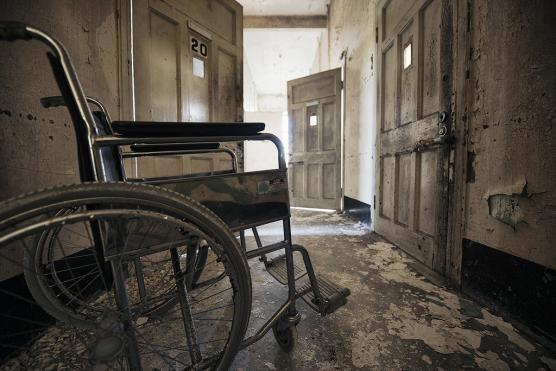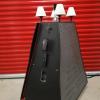I have spent nearly 18 months running a gauntlet of the American healthcare system, being passed from doctor to doctor and put through a battery of expensive and uncomfortable tests with no answers whatsoever. I have come to the conclusion that our healthcare system is absolutely broken, and they should remove the word “care” from the name. Unless of course, we’re talking about money because that is what they care about.
While our politicians argue about insurance coverage, which they call “healthcare” and being able to abort an unborn child in the third trimester, which they also call “healthcare” – actual healthcare has been largely ignored.
Running the Healthcare Gauntlet
A year and a half ago I started having issues with dizziness, nausea, and fatigue. My first trip to urgent care was the day after my birthday 2017. They couldn’t really find anything wrong. They gave me an IV for hydration and some anti-nausea medication and then a bill for $500 because they considered it as emergency care. That’s just a fraction of what they charged my insurance company.
Nearly a year went by with intermittent bouts of the same symptoms, but I would just drink more water and rest and usually, the symptoms would subside in a day or two. In that time a family friend was diagnosed with stomach cancer which they believed originated from the H. Pylori bacteria, which can cause stomach ulcers and ulcers can turn cancerous. My wife tested positive for the same bacteria and so I got tested as well, which came back negative. The situation with my wife’s friend raised some red flags in my mind because of nausea. So even though I tested negative for H. Pylori I went to see a gastroenterologist. He examined me, gave me some acid reducers and told me if the symptoms return then he may want to do an endoscopy.
Fast forward to a family trip to Florida in the summer of 2018. One day in the middle of the trip I felt ill again with the same symptoms except for this time it was worse. Much worse. It literally put me in bed for a few days. I felt extremely dizzy and nauseous almost to the point I couldn’t walk. I went back to the gastroenterologist and over the course of the next 5 months, he proceeded to put me through a battery of tests that included blood tests, an endoscopy, colonoscopy, abdominal CAT scan, x-rays, gallbladder ultrasound and finally a HIDA scan. Everything came back negative. In the end, the GI doctor threw up his hands and pointed me to focus on the dizziness part of the symptoms. Something in hindsight I should have done much earlier because I spent thousands of dollars and over $40,000 was charged to my insurance company for tests with no answers.
Tragically, that friend with stomach cancer passed away in November of 2018 at the age of 43 because, by the time the doctors found her cancer, it was stage 4.
I next went to see an internal medicine doctor, which I later discovered is like a family doctor but focuses only on adults. More blood tests and a thorough physical exam but still no answers. She recommended I see an ophthalmologist and an ear, nose, and throat doctor as well as ordered a CAT scan of the brain. So, I did.
First, the ophthalmologist, who found nothing of concern like glaucoma and my visual acuity was good. However, I did learn that I was having ocular migraines with no headaches. Something I had for a long time but never knew what they were.
The CAT scan came back clear so with that, I moved on to the ENT. He put me through another battery of tests, most of which came back negative. Although, one test did show something that concerned him. I took a test called a VNG test, which is supposed to identify vestibular disorders. Instead, it identified what’s called a “central finding” meaning central nervous system. During some of the tests, I showed up beating nystagmus. The ENT proceeded to tell me that it could be multiple sclerosis, a brain tumor, or it could be nothing at all and recommended I see a neurologist. Que the panic attacks.
I’ve never had a panic attack before. Sure, I’ve had moments of high stress, fear, and anxiety but never a full-blown panic attack. Over the course of the next few months, I would have many of them. Sometimes I would have several in one a day. Panic attacks are a horrible experience and I wouldn’t wish them on anyone.
While trying to find a good neurologist, I decided to go see another family doctor, mainly to establish a new primary care physician for myself. I went over what I had been through and in the span of a 15-minute conversation, he decided that my issues were primarily caused by lack of sleep and anxiety. He gave me a prescription for Trazodone, which is an anxiety medication with a strong sedative effect. He called it a “diagnostic tool” to see if my issues were in fact caused by insomnia and anxiety. I took it once and had a very bad reaction. So bad that I went back to him thinking it gave me a stroke. Numbness, tingling, and severe dizziness almost to the point I couldn’t walk. He assured me that it wasn’t a stroke and that I should try the Trazodone again. No thanks Doc, I’ll pass.
It took nearly a month for the dizziness to subside and also took a month to get in to see a neurologist. The neurologist spent a fair amount of time with me going over my symptoms, giving me a couple of balance and dexterity tests and at the end ordered an MRI, EEG and more blood tests, this time for autoimmune disorders. More tests, more waiting, and more anxiety.
I sit here today still with no answer, but I have learned a lot.
Doctors Don’t Know Everything
Hollywood often portrays doctors as geniuses with special gifts that are almost magical. No doubt there are some genius medical researchers and gifted doctors out there but when we look at the medical profession as a whole, it’s filled with people just like the rest of us in any other career choice. Some great, some good, some bad, and some who should not be anywhere near a patient. The truth is doctors aren’t walking encyclopedias of medical knowledge and they’re also not Sherlock Holmes capable of solving complicated mysteries. Sure, for common things like a cold or broken bone they’re fine but for things like cancer and rare diseases and disorders. They’re shooting in the dark and working with methods that are decades old because that’s all that has been shared.
The Silos
One of the problems with healthcare is silos. If you’re old enough to remember the aftermath of the 9-11 terrorist attacks, you’ll remember that silos among intelligence and law enforcement were a major contributing factor. Something similar exists in healthcare. Information is not shared as rapidly or freely as we would like to think. Why? It’s simple … money.
Protecting their proprietary techniques, medical breakthroughs, and drug formulations are the highest priority for most businesses in the medical industry. Our system rewards protectionism more than it rewards medical advances. I am as much a capitalist as the next guy and believe those who break new ground in any industry should be rewarded but I think the problem is how they are rewarded. It’s awesome that we have places like Mayo Clinic but it’s not helpful to the masses if you can’t get in the door to get treatment or if these “miracle” drugs on the market are cost prohibitive. I’m not smart enough to know the answer but I can see the problem.
Silos aren’t just a problem at the big companies. It filters through nearly every aspect of the healthcare industry. If you’ve ever had to go see multiple specialists or get tests like an MRI at freestanding imaging place, then you’ve seen these silos. It’s in the stack of the exact same forms you have to fill out for each and every single doctor you see and every test you take. You see it when you have to explain your symptoms over and over and over again. You see it when the default method of transferring MRI test results from an imaging clinic to a doctor’s office is via fax machine. That’s right, a fax machine!
Nothing is centralized, nothing is shared and there is no incentive to do so. In fact, the incentives are to decentralize and protect your ground. That is a fundamental flaw in our system from top to bottom.
Where is the Empathy?
When an industry is driven purely by profit and protectionism, empathy and morality disappear. Like many diseases, this lack of empathy spreads and infects all levels of the healthcare industry. It becomes part of the culture for both big companies and small medical practices when profitability is the central concern. It creates pressure on employees and doctors to see as many patients as possible in a day and heard them in and out like cattle. It creates pressure for companies to squeeze every last penny from prescription drugs that have been on the market for decades. It’s the same motivation that drives companies to dump toxic waste in a river rather than go through the extra expense to dispose of it properly. What many receive as healthcare is nothing more than the toxic waste of an industry that has lost its way.
What do we need?
We need the disruptors that have moved so many other industries forward to put some of that energy and vast resources into healthcare. Not only in how it is delivered but innovated also. Imagine a world where supercomputers with artificial intelligence capabilities gathering medical data – failures and successes from around the world – from hospitals, doctors, researchers, and patients all in one place. Imagine having a system that would reward companies who shared their medical breakthroughs and made it available to everyone instead of keeping them secret and having them only available from one company. Imagine what industry disruptors like Amazon, Apple, and Microsoft could do for healthcare or if innovators like Jeff Bezos, Elon Musk, and Bill Gates worked together for humankind. Another great innovator, Steve Jobs or my 43-year-old friend with stomach cancer might still be alive. Imagine if something other than greed drove these companies and “care” came back to healthcare. That would be powerful.
If you’ve read this article all the way through, then it resonated with you in some way. So here is my challenge to you. Share it with others. Share it with the companies mentioned, with the powerful corporate leaders and politicians. Paraphrase it, steal from it, copy and paste it. I don’t care. Share it however you can.
















